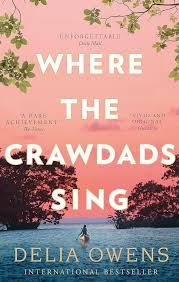18. White Canoe
byWhite Canoe begins in 1960, immersing readers in the intimate yet evolving relationship between Kya and Tate, set against the backdrop of the natural world they both hold dear. As the chapter unfolds, it captures the innocence of youth mixed with the complexities of growing up, particularly as Kya navigates her emotions toward Tate. One of the most significant moments in this chapter occurs when Tate surprises Kya with a birthday celebration—something Kya had not experienced in many years. Her fifteenth birthday becomes a meaningful milestone as Tate presents her with a store-bought cake, a gesture that touches Kya deeply, as it represents not only his affection for her but also a form of acceptance and belonging that she has been deprived of for so long. In addition to the cake, Tate gives Kya a magnifying glass, a decorative hair clasp, and a set of art supplies, thoughtful gifts that demonstrate his understanding of her interests and aspirations. These presents symbolize Tate’s acknowledgment of Kya’s individuality and her passion for learning, further solidifying the bond between them.
As their relationship continues to develop, the narrative shifts focus to Tate’s own responsibilities and the weight of his commitments. Tate’s work with his father, Scupper, is a crucial part of his life, and the chapter explores how he manages the balancing act between his personal desires and his family obligations. Scupper, fully aware of Tate’s growing affection for Kya, expresses concern, cautioning his son about the potential consequences of becoming too involved with her. The exchange between Tate and his father is a turning point, revealing the internal struggle Tate faces—torn between his love for Kya and the weight of familial expectations. This tension highlights the complexity of Tate’s character and the dilemmas he must confront as he navigates his future and his relationship with Kya. The dynamic between Tate and his father also offers insight into the broader social pressures at play in their small community, where expectations can often conflict with personal desires.
The chapter further delves into Kya’s remarkable intellectual journey, spurred by her curiosity about the world around her and Tate’s encouragement. Her knowledge of the natural world deepens as she learns more about biology and the ecosystems of the marsh. Tate plays a significant role in Kya’s education, nurturing her innate curiosity and helping her to expand her understanding of the world beyond her immediate surroundings. Her intellectual growth serves as a form of emotional healing, as it allows her to connect with the world in a way that goes beyond the emotional pain of abandonment. In this sense, Kya’s education becomes more than just academic—it’s an avenue for her personal growth and healing, giving her a sense of purpose and empowerment. This intellectual journey also underscores her resilience and determination, as Kya refuses to allow the hardships of her past to define her future.
However, as their relationship deepens, the emotional intensity between Kya and Tate reaches new heights, bringing with it a series of challenges. Their bond evolves, marked by both emotional and physical attraction, yet Tate’s internal conflict and restraint demonstrate his deep respect for Kya’s youth and her emotional well-being. He is careful not to rush into a physical relationship, understanding that their connection is still developing, and that both their lives will be altered by the decisions they make. Tate’s hesitation reflects his awareness of the complexities of their relationship and his desire to protect Kya from potential emotional harm. This tension between their deepening desire and Tate’s restraint becomes a central theme in their relationship, emphasizing the struggle between youthful passion and the responsibility that comes with it. The complexity of their emotions and the difficulties they face in navigating their desires is a poignant reflection of the challenges of growing up, and the way love often requires both patience and self-awareness.
In conclusion, Chapter 18 of Where the Crawdads Sing masterfully captures the intricacies of young love, personal growth, and the delicate balance between affection and responsibility. Kya and Tate’s relationship evolves in beautiful yet challenging ways, marked by moments of deep connection and emotional complexity. Through their interactions, the chapter explores themes of self-discovery, intellectual empowerment, and the pressures of societal expectations, all set against the backdrop of the natural world that serves as both a refuge and a witness to their journey. As Tate and Kya navigate the waters of their evolving bond, the chapter underscores the timeless struggle between desire, self-reliance, and the realities of growing up. Their story is a reflection of the universal experience of discovering love, balancing personal growth, and confronting the emotional complexities of life.


